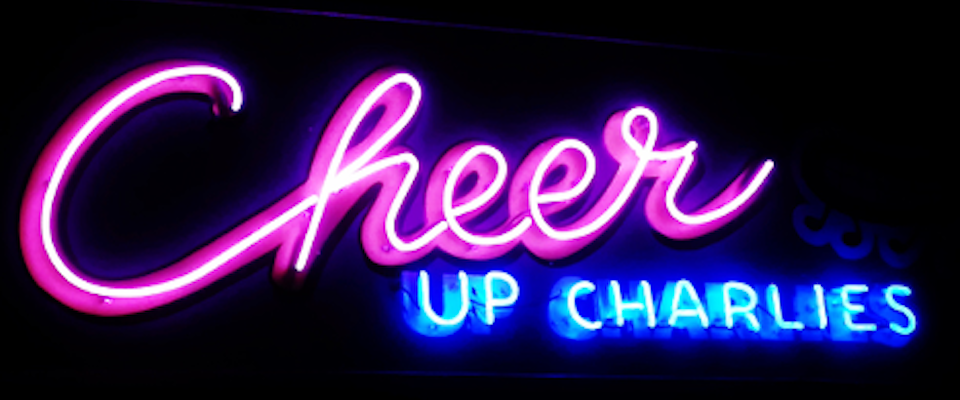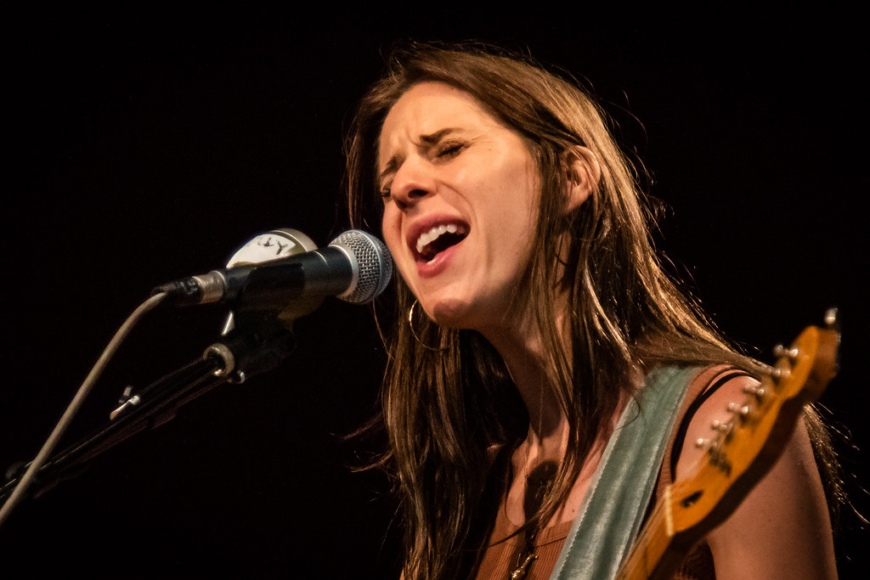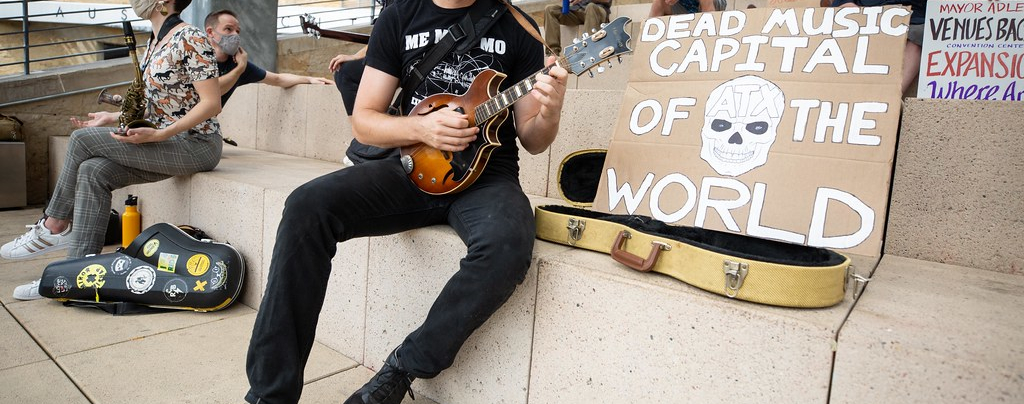Back in Austin on 4/21, Dave Wakeling Keeps the English Beat Moving
By Jeff McCord
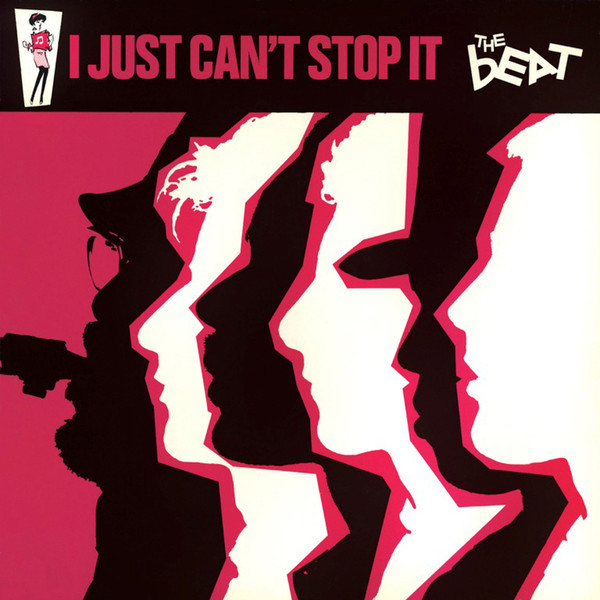
Even for a time when so much exciting new talent was bursting forth, they stood out. There was not much else like them, really, and that remains true today.
The Beat – or as they were known in this country, thanks to Paul Collin’s US power pop venture, the English Beat -were about as unlikely a grouping of individuals as you can get, at least at the time – a multi-racial band whose members spanned in age from 16 to 64. And their musical blend was just as unlikely; a seamless mix of punk, ska, soul, reggae and pop. Their initial six-piece lineup would only last from 1978-1983. Yet in that time there would be world tours, three albums, and numerous hit singles. And to hear it from their lead vocalist, Dave Wakeling, this unlikely lineup all fell together easily.
“Andy [Cox, guitar] and I had gone to junior college together,” Dave explains. “His brother in law and I bought some properties on the Isle of Wight, so we went to live there. We had a fairly agrarian life, building solar panels in the countryside, with a view of the ocean, which was very different from Birmingham. And we started writing songs around the fire and playing in the evenings.”
“Eventually somebody said ’You should play these for people.’ We put out an advert that said ‘Shake Some Action, Bass Player Required’. Only one person answered, and that was David Steele, who immediately said if we needed to form a group, there was no point doing it on the Isle of Wight because there were no gigs. So we moved back to Birmingham. David got a job as a nurse trainee, and asked another nurse if she knew any reggae drummers. And she recommended Everett [Morton]. He joined the group and we started rehearsing.”
“We’re working every Tuesday night at a club in Birmingham, the Mercat Cross, and very close to that was the only pub in town that would allow punks and Rastas in, called The Crown. [Ranking] Roger would come round from the Crown with his mates and it almost doubled the crowd. He started jumping up on stage, grabbing the mic and toasting and rapping about what had gone on in Birmingham that week. And you had to wait till he finished because we’d only the one mic. And then, we were about to make a single, and we asked this old guy that played saxophone that we used to see in a local pub, Saxa, whether he would play on it. He did, and he declared that it was the band he’d been waiting for his whole life, and that while we might not know it, we were going to have a lot of hit singles. And we did! So everybody we met was the only person we met, the first bass player, the first drummer, the first toaster, the first saxophonist. It seemed sort of enchanted, in a way.”
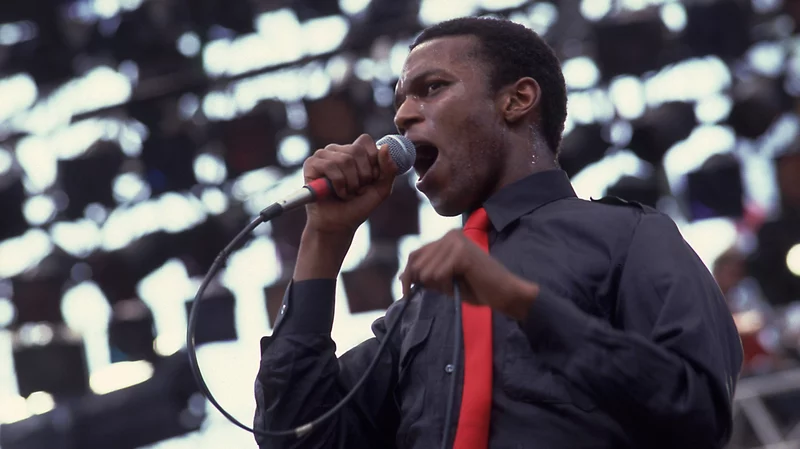
As was their unique blend of musical styles, a byproduct of their distinct personalities and the quirks of the Birmingham scene.
“When we went back to Birmingham, we started having these parties. There were only a couple of clubs that would allow punks. It was very strict, you know, you’d have to wear a tie. The city center in Birmingham, oddly enough, was owned by the Cadburys, the chocolate people, which was all very well and good, apart from the fact that they were Puritans. There were lots of restrictions on music, alcohol, dancing, all of that sort of stuff. So we had these house parties with a reggae deejay in one corner and a punk deejay in the other corner. And if you had all punk songs, the dance floor would be packed, and if you had all reggae. you’d end up with everybody just leaning against the wall, nodding. But if you mixed it up, the dance floor stayed packed all night. We had quite a few celebrities come through Boy George, some blokes from UB40, Dexy’s, the Au Pairs. They were really popular parties. And Andy was sitting on the floor in the DJ room watching the crowd, and he said ’What if you could get the elements of both deejays into the same three minute pop song?’ And that was really when the light bulb went off. So it was as if it was a jam session between the Velvet Underground and Toots and the Maytals. On top of that was David Steele’s love of the Monkees pop irresistibly, let’s say, with John Lennon sneaking in, helping out with the lyrics.”
There were other acts blending ska and punk, most notably the Specials.
“We were rehearsing and David came round to Andy’s place and threw an open copy of the Melody Maker on the floor and said, ‘It’s too late. Somebody’s already done it. And they’re from Coventry!’ You get sent to Coventry, you know? So we had quite a serious conversation about whether we should carry on, but we decided that pop being kind of fickle, there might be room for two groups doing that kind of punky reggae.”
The Beat and the Specials would end up sharing stages, along with other acts like Madness and the Selecter. Yet for a music born of utopian inclusion, they shared a particular fanbase problem – skinheads, not exactly the most tolerant bunch.

“Hence the Beat Girl.” explains Dave, referring to their famous logo. “We played a couple of shows with The Selecter and we noticed the skinheads. We thought we were in trouble. A bunch of London skinheads came up and said, ‘Black geezers and white geezers on stage together. I’ll have some of that.’ We said, ‘Oh, I thought you’d like it.’ We were terrified we’re going to get our heads kicked in. But we noticed that the boys were acting more like they were at a football match than they were at a skinhead dance. A skinhead dance was quite formal, and the skinhead girls were very much in charge. They would dance in circles with their handbags in the middle, so nobody could knick your handbag. The skinheads had to behave and try to build up the courage to go and ask for a dance. So I said, ‘What we need is a skinhead girl and they’ll behave better.’ So we invented the Beat Girl. They’d have to get the dress denims and put on the Crombie jackets and the smart shirts and some an extra spray of Brute. I can’t say it stopped all the fights, but it stopped the vast majority of them. I would go and see Specials and Madness and Selecter shows, and they still seem to have a bit of the skinhead rock going on. Some of them had courted it, to be honest. It exploded back on them. With the poor Specials, it almost became a tradition where the skinheads of different towns were trying to outdo each other in how badly the show would go. We avoided that, thank heaven.”
And it was their overriding rhythmic pop sensibilities that made the Beat’s live show and three albums (1980’s I Just Can’t Stop It, 1981’s Wha’ppen?, & 1982’s Special Beat Service) so thrilling. (The original lineup played twice in Austin, once at Club Foot, another time opening for Talking Heads; both shows were unrelentingly joyous.) But their appeal made them highly in-demand, and ultimately, that wore them down.
“We’d worked a little bit too hard. We started to get on each other’s nerves. And the work rate dropped dramatically towards the end. Whereas things at the beginning had been magical and just fell into place, you couldn’t arrange anything. David and Andy wanted two years off. David thought we were getting sucked into the pop group cliche. We were spending more time on tour buses than commuter buses, and he was worried that we’d end up writing songs about that sort of thing – barreling down rock and roll boulevard. The Clash had been one of our punk heroes, and we ended up playing stadiums alongside them in America, [the Clash] looking quite rock and roll, like the Rolling Stones. No difference, really. So I think there was some of that going on as well, creativity being sucked in and just distributed like the regular business does. I think exhaustion was a lot to do with this. Sadly, we probably could have just done with some milk and cookies and a nap, and carried on. But that’s what happened. David had two years off, and so did Andy, and they started putting Fine Young Cannibals together. At the time, two years off was not feasible for me and Roger because we just started having kids. [The Beat] had been somewhat of a socialist enterprise. We all shared the songwriting money and the record royalties. So everybody was doing better than they had been before they were in a group, but nobody became rich, as it were. It wasn’t affordable. Roger and I decided to carry on and came up with the idea of General Public.”
Both offshoots would find some success, but neither would last that long. In 2003, the original lineup – except for Cox and Steele – would reunite for a show at Royal Festival Hall. In the end, Dave (who has now lived in California longer than he lived in the UK) and Roger agreed to front their own versions of the Beat in the US and UK, respectively. This worked until it didn’t.
“A little awkward. The original idea had been he could play as the Beat in England and I’d play as the English Beat in America. If we ever wanted to visit each other’s country, we’d do the shows together. But then he got a manager who tried to book an American tour for just him, and including the pub at the bottom of my road in Malibu. So it sort of soured after that. It became more competitive.”
Time passed. The last time Dave saw Roger, they got along fine. But he could tell something was up with his friend.
“We had a nice chat. But I knew he was unwell. He had seemed unwell for a couple of years to me. You know what it’s like when you don’t see somebody but maybe once a year or twice a year. You notice differences in them. I kept asking him about his health, but he kept insisting he was fine. I offered to go to the doctor with him, I thought maybe it was his thyroid. He looked so skinny. ‘Nah nah nah nah nah. I’m fine, I’m fine.’”
Roger would pass away from cancer in 2019. The same illness would claim Everett in 2021. Saxa, by far the oldest member of the original lineup, had died at age 87 in 2017. At this point, the only evidence of the original lineup lay in their recordings.
The English Beat albums are getting deluxe vinyl reissues in expanded editions, with the few extra tracks they recorded. The expanded double vinyl pressing of the first album is already out of print (though you can enter a drawing to win an autographed copy of the out of print clear double vinyl expanded edition of their debut album. Email next@kutx.org with your name and phone number. You must live close enough to pick up the album at our studios if you are the winner.). The new edition of Wha’ppen is being released Friday 4/20 for Record Store Day. These records meant so much to so many people. I tell him I hope he’s still a fan of them.
“You go through phases. But yeah, I’m a fan. For so many years, all I could do was hear them and say, ‘Oh, I should have done that.’ Basically, I was still mixing them until about a decade ago, in retrospect. What I like most, to be honest, is that we managed to include some social messaging in the sauce about some pretty heavy subjects, but in a jovial way that kept a lot of it under the radar. I like songs like “Two Swords”, which is about the relationship with people who go very right wing, like the skinheads in the crowd. A lot of the songs were talking about things that were matters of consternation at the time. And sadly, they still are.”
For all these years, Dave Wakeling has tirelessly kept a version of the English Beat on the road. On April 21st, the band is appearing at ACL Live alongside Adam Ant. They have made many stops at KUT/X over the years, dating back to a 2007 show on my old program Left of the Dial, as well as other Studio 1A performances and a live SXSW showcase from Momo’s. The day of our Zoom interview, Dave is speaking to me from his tour bus in Eau Claire WI. Now 68, I wonder how he keeps up the pace.
“It’s healthier than staying home. You have to exercise for 90 minutes a day and they pay you for doing it. If I stayed home, I wouldn’t exercise. It does seem hard when you get back on the horse. But after the first few days of the first week, it becomes quite easy.”
“It’s been fun,” he continues. “This tour has been a lot of wineries. And yesterday, somebody sent me something that says the re-release of our first album is number two in the Jamaican charts. The best of Bob Marley is number one. Me and Bob. He did an interview in Sweden once where he said he really liked the Beat. We were his favorite, too, so…”
“Really?” I say, “That’s great.”
“Unfortunately,” he laughs, “it’s only written in Swedish.”

